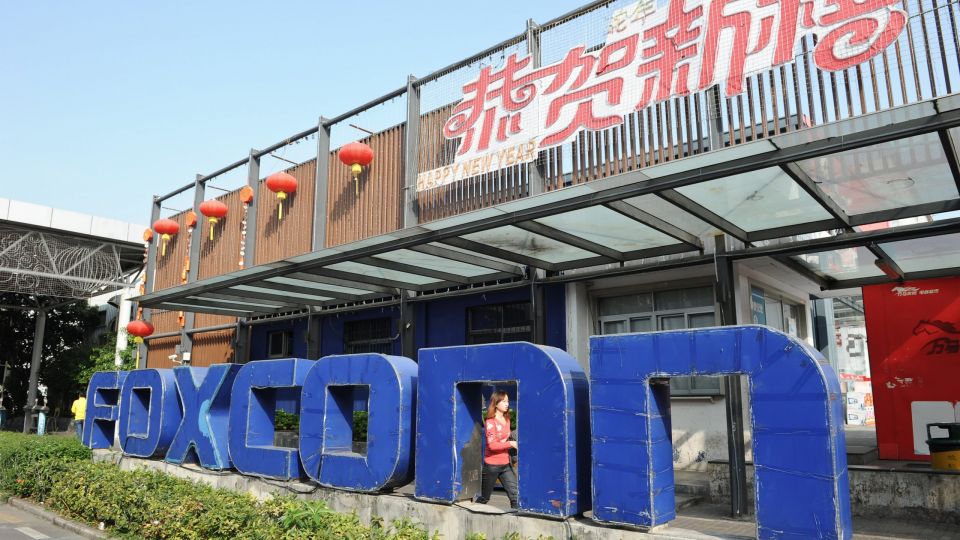March 5, 2019
The myth of growth in which auto and housing sales continue to support the economy has collapsed.
The National People’s Congress of China began Tuesday in Beijing. This year is a milestone, marking the 70th anniversary of the founding of the People’s Republic of China, and the economy is the main focus of attention at the NPC, China’s national legislature.
The myth of growth in which auto and housing sales continue to support the economy has collapsed. This article will explore the actual situation in the country.
‘Worst figure’
“We only sold 500 vehicles last year, and so incurred a loss of 800,000 yuan (about ¥13.2 million.) It’s the worst figure since we started operations,” said Zhu Dawei, a general manager of a sales outlet of U.S.-based automaker General Motors in Shenyang, Liaoning Province.
The outlet was empty without any customers.
“We sold 1,300 vehicles in the peak year of 2013,” Zhu lamented.
Chinese President Xi Jinping took office in 2013. In that year, the number of new cars sold throughout China increased by 13.8 percent from the previous year to 21.98 million units, surpassing 20 million for the first time.
The country’s gross domestic product grew by 7.8 percent, which exceeded the government’s target growth rate.
Xi advocated a draft plan for the huge economic zone concept “One Belt, One Road,” and encouraged Chinese companies to expand their business overseas.
In 2018, five years after Xi took office, the auto market was shaken significantly. The country’s new car sales declined by 2.8 percent year on year to 28.08 million units, falling below the previous year’s level for the first time in 28 years.
This was due to the end of a tax break on small cars, falling stock prices, and U.S.-China trade friction.
“The sluggish auto sales in 2018 are attributable to the government, which made light of the impact of the trade row with the United States,” a Chinese economist said.
The effects of the economic slowdown have extended to the real estate market.
Last autumn, high-rise condominiums built along a coast were put on sale in Xiamen, Fujian Province.
The price per square meter for a unit with two bedrooms and a living-dining room is 26,000 yuan (about ¥430,000). That is a reasonable price in Xiamen, where housing prices have remained high, but only a few people have visited there for the purpose of buying them.
Inventory piling up
“Actually, we’re selling the condominiums below cost,” a man in charge of the sales said. Explaining the reason for the low prices, he said, “Considering the construction costs, we want to sell units for 40,000 yuan (about ¥660,000) per square meter, but we can’t hold on to the inventory.”
In Xiamen, unsold homes have piled up to a value equivalent to total transactions for 18 months.
The housing market is deteriorating nationwide. According to Chinese media, the floor space of homes sold fell 9 percent year on year in Beijing in 2018, and 4 percent year on year in Shanghai in the same year.
The Xi administration stressed that houses are for living, not for speculation, and thus it restricted purchasing and reselling of homes for the purpose of speculation.
Some believe that the cooling of the housing market is due to the government’s strong stance.
‘Gray rhino’
Not only are major industries such as the auto and real estate industries suffering from poor performance, the rapidly growing information technology industry also has begun corporate downsizing.
If the economic and employment situations are destabilized, it will lead to growing social concerns, which would undermine the foundation of the Chinese Communist Party-led government.
In January, Xi called for top-ranking officials at the central and local governments to keep highly vigilant against domestic and foreign economic risks, saying they would need to prevent not only “black swans” but also “gray rhinos.”
A black swan is an event — such as the financial crisis triggered by the collapse of Lehman Brothers in 2008 — that is rare but has great impact on the market if it occurs.
A gray rhino is an issue that is highly likely but tends to be underestimated, such as debt issues. Though Xi usually does not use such economic terms, he used them to get senior officials fired up about the economic risks, which indicates that his administration has become increasingly alarmed.
Chinese Premier Li Keqiang denied the possibility of adopting pork-barrel policies. However, if the situation worsens further, China could make a policy shift, like the 4-trillion-yuan economic package it adopted after the collapse of Lehman Brothers.
With the Chinese economy facing an unprecedented crisis, dark clouds are looming over China as enters the milestone year marking the 70th anniversary of its founding.



